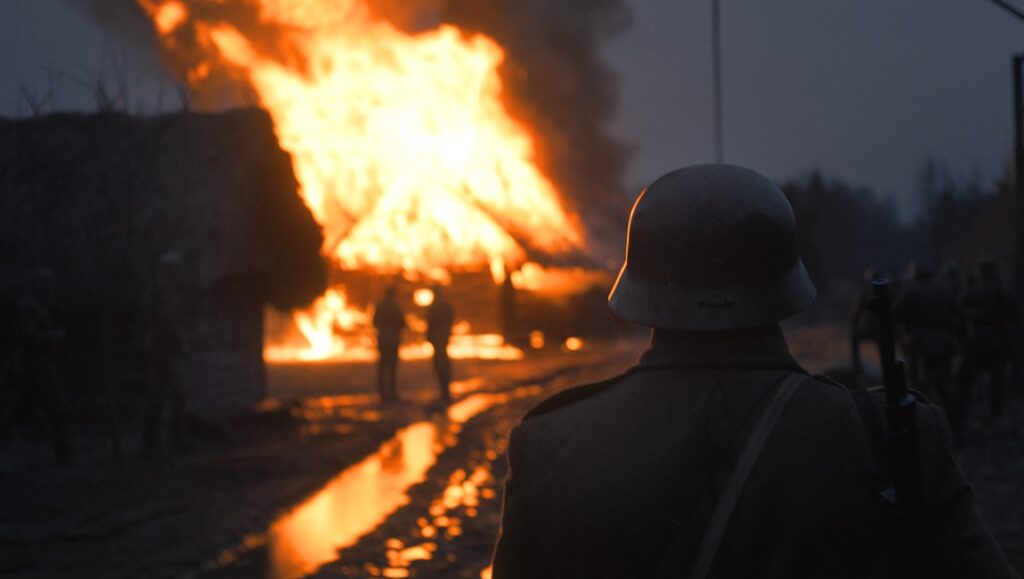Solemn and severe, Dénes Nagy’s Natural Light is another World War II film about man’s inhumanity towards man and the futility of morality in the face of unthinkable atrocities. As such, it’s treading very familiar ground, even going so far as to restage a key event from Elem Klimov’s 1985 anti-war masterpiece Come and See. Natural Light follows a group of Hungarian soldiers who, aligned with the occupying German army, are patrolling rural areas of Russia and rooting out insurgent partisan forces. We are largely tethered to the perspective of Corporal Istvan Semetka (Ferenc Szabo), a mostly silent, seemingly passive man who trudges through mud and ice with a grimace permanently etched on his face. Eventually, his squad comes across a small village, where they subsequently set up shop and pillage food from the residents. Patrolling the surrounding forest for resistance fighters, Semetka and the men come under fire, and their commanding officer is killed. Convinced that the villagers have given away their position, the men return to the village, round up the residents, and force them into a barn. When a new officer arrives to assume command, he sends Semetka away on patrol and burns down the barn in his absence.
There’s not much more plot than that, and even less traditional characterization. Coming from a documentary background, Nagy seems just as interested in incidental detail as he is in telling a story, frequently focusing on textures or detailing the painstaking process of pushing carriages through muddy bogs and slaughtering elk. Visually, it’s a beautiful film; images are dark and overcast but never washed out, and Nagy’s willingness to force the viewer to witness long periods of grueling marching alongside Semetka gives the film an experiential quality. Still, one can’t escape the impression that this is distinctly well-trod material, no matter how effective the film’s aesthetic character is. Eventually given a chance to tell his higher-ups what has transpired in the village, Semetka decides to keep his mouth shut, detailing the sneak attack but eliding the massacre. It’s unclear why exactly he’s making this particular decision, and like much else here, there isn’t much to even formulate hypotheses on. The final images of Semetka traveling towards a sunrise are genuinely compelling — is he traveling towards grace or, perhaps, forgiveness? — but also so cryptic as to render any philosophical inquiry moot. In this sense, Natural Light is a Rorschach test of sorts, affording the viewer space to project onto Semetka’s placid visage, but none of the film’s committed opacity crescendos into any sort of clarity. In that absence, we’re left to wallow in a gorgeously rendered but ultimately superficial reminder — one without any clear need at this point — that war is indeed Hell.
Published as part of Berlin Film Festival 2021 — Dispatch 3.


Comments are closed.